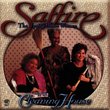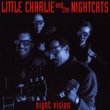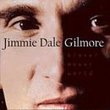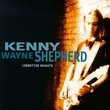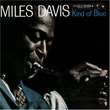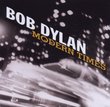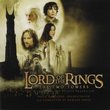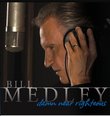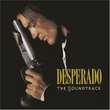| All Artists: Mellow Fellows Title: Street Party Members Wishing: 0 Total Copies: 0 Label: Alligator Records Release Date: 7/1/1991 Genres: Blues, Pop, R&B Styles: Chicago Blues, Electric Blues, Modern Blues Number of Discs: 1 SwapaCD Credits: 1 UPCs: 014551479321, 014551479314, 014551479345 |
Search - Mellow Fellows :: Street Party
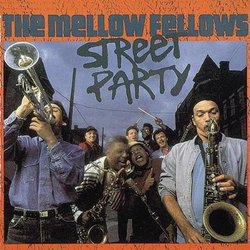 | Mellow Fellows Street Party Genres: Blues, Pop, R&B
|
Larger Image |
CD DetailsSimilar CDs
Similarly Requested CDs
|
CD ReviewsThe Legacy of Big Twist Jon Alexander | Masham, Quebec, Canada | 12/07/2007 (5 out of 5 stars) "I am not an entirely objective observer, because Big Twist was a good friend of mine. The band of Big Twist and the Mellow Fellows is no more. Twist is dead. When this band was going strong it was one of the most creative and innovative blues bands in the United States.
Twist grew up with me in Southern Illinois in the village of Murphysboro, and his sax man, Terry Ogaliny did too, in the even smaller village of Dowell. They played together as young adults in a bar called Junior Hatchet's, which was just across the road from Junior's mother's place, Ma Hatchet's, which was a house of prostitution. These establishments were located in the minuscule village of Colp, where the Number 9 Mine was also located, which was celebrated in the song, "Sixteen Tons." Jr. Hatchet's bar was mainly for blacks, and the other bar, the Glass Bar, was mainly for whites. Back in the 1950s, segregation was fairly strict. I used to travel back and forth between these two bars, listening to Twist, and then to the great rock and roll guitarist and singer Jimmy Houston, an avid disciple of that astonishingly creative precursor of Rock and Roll, Jimmy Reed,in the Glass Bar. Musicians traveling from Chicago down to New Orleans would often choose to stop off at Jr's because it was a nice drive south from Chicago, about 330 miles, and often they would stop again on their trek north. Some of the musicians who were later to become truly great played at Jr's, such as B. B. King, James Cotton, Ramsey Lewis, etc. Big Twist's real name was Larry Noland, and he was a giant of a man. One of his songs was entitled "300 Pounds of Heavenly Joy" -- and that was when he was on a diet. Toward the end of his life, he decided to try to create a new variation of the blues, which he called the happy blues, an oxymoron if ever there was one. His logic was that the blacks had originally created the blues because the majority of whites had so wholly oppressed them. However, by the 1970s, the civil rights movement had already had some significant effects, and times had definitely changed. One of Big Twist's songs in this new genre he called "I Brought the Blues on Myself," which constituted an extremely powerful message to the black community. In effect, it said, you have been blaming your shortcomings and failures wholly upon the whites for long enough. Earlier, that was certainly accurate. Now that you have much more opportunities, it is time for the blacks to rethink the blues, and to admit that they often did in fact bring the blues upon themselves. Big Twist was a master of musical compositon, and he came up with some delightful lyrics. For example, he composed a song that contained the line: "I'm an alcoholic, and sometimes I regret it, especially when the liquor store won't give me no credit." Although the band put out the rumor that Twist had died as a result of kidney failure, in fact he died as a result of an overdose of cocain. Shortly before he died, he confessed to me that he had developed this addiction. He said that it was an occupational hazard for musicians. A musician must entertain. He must be "up" to making his audiences happy and content with the performance. To do that day after day and month after month, and year after year (he averaged about 200 days per year on the road), just eventually wore him down. After Twist died, the band carried on. There was some internal dissent, and everybody except one man, the new leader, quit. The dissidents reformed as the Chicago Rhythm and Blues Kings, under the leadership of the wonderfully talented sax man, Terry Ogilvy, who was a faithful disciple of the great Charlie Yardbird Parker. This band continued to record CDs, but without the guiding hand of Big Twist, it eventually fell into some internal dissent and disbanded. However, its tradition still lives in the form of Big Twist's half brother, Big Larry, who directs the "Down Home Blues Band," which continues to produce music in the tradition of Big Twise and the Mellow Fellows. Historically, Twist's band was extremely important in making the transition from pure blues to rhythm and blues. It is odd in the extreme that Big Twist and Jimmy Houston should have been playing at opposite ends of a tiny village street, and both were destined to have an enormous impact upon the evolution of the blues toward rhythm and blues, and beyond. This is an album well worth having, and not just because of its historical importance. It is delightful to listen to, and well worth the effort to understand from where this music has come down to us." |

 Track Listings (11) - Disc #1
Track Listings (11) - Disc #1